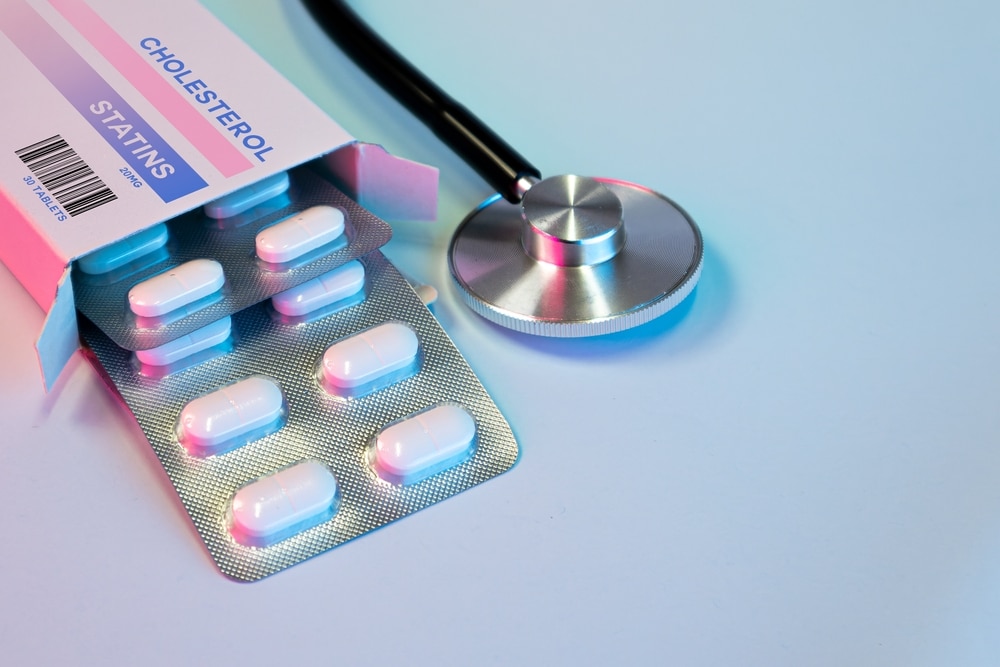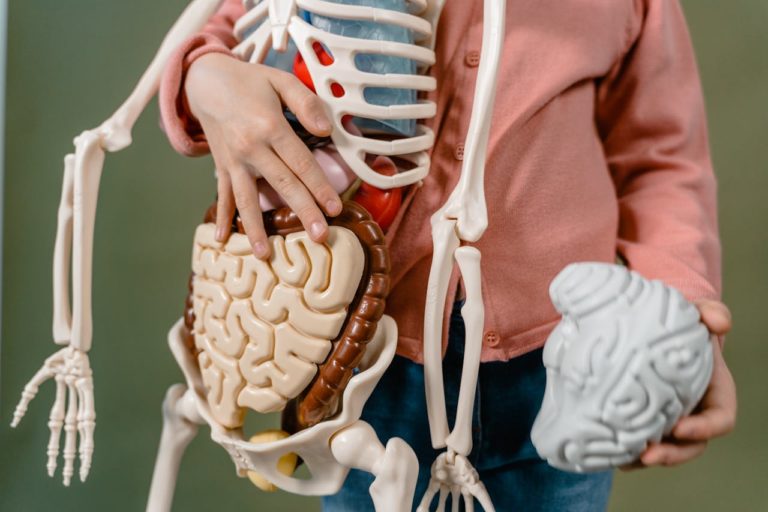Navigating the world of cholesterol management can often lead to a discussion about statins—a common and effective treatment prescribed by doctors to combat high cholesterol and reduce the risk of heart disease. However, the conversation about statins doesn’t stop at their benefits. Like any medication, statins come with potential side effects and concerns that might make some patients hesitant. Whether it’s due to personal experiences, a preference for natural remedies, or the desire to avoid specific side effects, many individuals find themselves contemplating what to say to their doctor when statins are recommended.
When your doctor tells you to take statins, it’s not just about accepting the prescription and moving on. It’s about understanding exactly what you’re getting into—because, let’s face it, every medication has its story, complete with benefits and potential side effects.
What Are Statins?
Statins are a class of drugs that are widely prescribed to lower cholesterol levels in the blood and reduce the risk of cardiovascular diseases, such as heart attacks and strokes. By inhibiting a key enzyme in the liver, statins effectively decrease the production of low-density lipoprotein (LDL) cholesterol, often referred to as “bad” cholesterol. This action helps to prevent cholesterol buildup in the arteries, which is a major contributing factor to heart disease.
Common types of statins include Atorvastatin (Lipitor), Simvastatin (Zocor), Rosuvastatin (Crestor), and Pravastatin (Pravachol). These medications are chosen for their effectiveness in not only lowering LDL cholesterol but also in stabilizing the lining of blood vessels and reducing the likelihood of blood clots. Statins are typically prescribed for individuals with high cholesterol, those with a history of cardiovascular disease, or people at high risk of heart conditions due to various factors including family history or existing health issues.
Why Doctors Recommend Statins
Statins are not just about lowering cholesterol; they are a key component in the broader strategy to reduce cardiovascular risks. Doctors prescribe these medications to prevent the life-threatening consequences associated with high cholesterol levels, including heart attacks and strokes.
Statins are most effective in preventing cardiovascular disease in individuals who have already shown symptoms or are at high risk. This includes people with existing conditions like diabetes, hypertension, or a family history of heart disease. Statins work by reducing artery-clogging LDL cholesterol, thereby decreasing the risk of heart attacks and strokes.
Research has shown that statins do more than just lower cholesterol. They also help stabilize plaque build-up in the arteries, making it less likely to rupture and cause a blockage. Additionally, statins have anti-inflammatory properties that help calm the cardiovascular system, further reducing the risk of acute cardiovascular events.
The decision to prescribe statins is often based on a risk assessment that considers multiple factors, including age, smoking history, blood pressure, and cholesterol levels. Doctors use this information to determine if a patient’s overall risk of cardiovascular disease justifies the use of statins, following guidelines established by heart health organizations.

Common Side Effects of Statins
While statins are highly valued for their ability to manage cholesterol and reduce cardiovascular risks, like any medication, they come with potential side effects that patients should be aware of. Here’s a focused look at the more common side effects associated with statin use:
- Muscle Pain and Weakness: One of the most frequently reported side effects of statins is muscle pain and weakness, known as myalgia. This discomfort can range from mild soreness to debilitating pain, which can affect daily activities. In rare instances, this can lead to more severe muscle damage.
- Digestive Problems: Statins may cause nausea, diarrhea, or constipation in some individuals. These gastrointestinal issues can usually be managed with dietary adjustments or consultation with a healthcare provider if they persist.
- Increased Liver Enzymes: Statins can affect liver function, which may lead to an increase in liver enzymes. While this is generally temporary and not harmful, it requires monitoring. If enzyme levels rise significantly, it may necessitate a change in medication or dosage.
- Neurological Effects: Some people on statins may experience headaches, dizziness, or difficulty sleeping. These side effects are usually transient and resolve as the body adjusts to the medication.
- Rash or Flushing: Statins can cause skin reactions, such as rashes or flushing, especially when taken in combination with other drugs like niacin, which is also used to manage cholesterol.
The Lesser-Known, Concerning Downsides of Statins
While statins are widely acknowledged for their effectiveness in managing cholesterol and reducing cardiovascular risk, they have also sparked significant controversies, particularly concerning serious side effects that raise questions about their widespread use.
Depletion of CoQ10
Statins interfere with the production of Coenzyme Q10 (CoQ10), a crucial nutrient that supports energy production in cells and serves as a powerful antioxidant, especially important for heart health and muscular function.
Since cholesterol synthesis pathways are involved in CoQ10 production, statins can inadvertently lower CoQ10 levels, potentially leading to diminished heart muscle function and increased cardiovascular risk, paradoxically countering the benefits intended by statin therapy.
Increased Risk of Type-2 Diabetes
Research has indicated that statins may elevate the risk of developing type-2 diabetes. A study involving nearly 9,000 individuals highlighted that people in their 60s using statins had an almost 40% higher chance of developing diabetes.
This association was further substantiated by findings that statin users often exhibited higher rates of high blood sugar and insulin resistance. The implications are profound, as these conditions are underlying factors in several chronic diseases, including Alzheimer’s and other forms of dementia.
Earlier studies also found a 50 percent increased risk of diabetes in women who took statins, amplifying concerns about their safety profile, particularly in vulnerable populations.
Memory Loss and Cognitive Effects
The personal experience of Duane Graveline, a former NASA astronaut, underscores the potential cognitive effects of statins. Graveline recounted a troubling episode of transient global amnesia shortly after starting Lipitor:
“All was well until six weeks later when my wife found me walking aimlessly about the yard,” he explained. “I ‘awoke’ six hours later in the office of the examining neurologist with a diagnosis of transient global amnesia, cause unknown.
“An MRI performed several days later was normal. Since Lipitor was the only new medicine I was taking, the doctor in me suspected a possible side effect of this drug. Despite the arguments of the examining doctors that statin drugs just did not do this, I stopped my Lipitor.”

If Your Doctor Prescribes Statins, Here’s What You Should Ask
Embarking on statin therapy is a significant decision that requires a thorough understanding of what to expect and how it fits into your overall health plan. To ensure you are making the best choice for your health, here are some essential questions to bring up with your doctor:
1. What Are the Alternatives to Statins? If you’re apprehensive about starting statins due to their side effects, it’s important to ask about other available options. Discuss all possible alternatives, from different medications to lifestyle changes, that could effectively manage your cholesterol.
2. How Long Will I Need to Take Statins? The duration of statin therapy can vary significantly depending on individual health factors. Ask your doctor whether this will be a temporary measure or a long-term regimen, and what factors might influence this duration.
3. What Kind of Monitoring Is Required? Understanding the monitoring process associated with statin use is critical. Ask about the frequency of blood tests and other assessments needed to monitor the effectiveness and side effects of the treatment.
4. Do the Benefits of Statins Outweigh the Risks for Me? Every medical treatment involves weighing benefits against potential risks. Discuss how the specific benefits of statins apply to your situation, particularly considering your personal and family medical history.
5. Are There Non-Medicinal Ways to Manage My Cholesterol? Inquire about lifestyle interventions such as diet and exercise that can help manage cholesterol levels. Ask for specific recommendations and whether these could be effective alternatives or complementary strategies to statin therapy.
6. How Should I Balance the Immediate vs. Long-term Effects? It’s important to consider both the immediate and future implications of taking statins. Discuss how the immediate benefits of reducing your cholesterol level compare with any potential long-term health issues.
7. What If I Experience Side Effects? Knowing how to proceed if you experience side effects is crucial. Ask about the signs that might necessitate stopping statin therapy and what the process would entail.
Bringing these questions to your next doctor’s appointment will help clarify your treatment options and ensure that your health strategy is tailored to meet your needs effectively and safely.
Statin Alternatives for Cholesterol Management Worth Exploring
While statins are a standard treatment for high cholesterol, they’re not the only option available. For those seeking alternatives due to concerns about side effects or personal preferences, there are several other strategies that can be effective in managing cholesterol levels. Here’s an overview of alternative approaches:
Lifestyle Modifications
Often, the first line of defense against high cholesterol involves changes in daily habits. Key lifestyle adjustments include:
- Dietary Changes: Adopting a heart-healthy diet that’s low in saturated fats and trans fats can significantly reduce cholesterol levels. Incorporating more fruits, vegetables, whole grains, and lean proteins can make a substantial difference.
- Regular Exercise: Engaging in regular physical activity helps improve overall cardiovascular health and can lower LDL cholesterol while boosting high-density lipoprotein (HDL) or “good” cholesterol.
- Weight Management: Achieving and maintaining a healthy weight is crucial for managing cholesterol and reducing the risk of related health issues.
Natural Supplements and Herbs
Certain supplements and herbs are known for their lipid-lowering effects and might be considered as complements or alternatives to statin therapy:
- Red Yeast Rice: Contains monacolin K, a substance that works similarly to statins. However, the quality and quantity of active ingredients can vary between products.
- Plant Sterols and Stanols: These substances, found in small amounts in many fruits, vegetables, nuts, and seeds, can help block the absorption of cholesterol.
- Omega-3 Fatty Acids: Commonly found in fish oil, these have been shown to lower triglyceride levels and slightly increase HDL cholesterol.
- Psyllium: A type of fiber available as a supplement, psyllium can help reduce LDL cholesterol when used consistently.
Other Medications
For patients who cannot tolerate statins or prefer an alternative, doctors might prescribe other types of cholesterol-lowering medications such as:
- Bile Acid Sequestrants: These drugs work by binding to bile acids, forcing the liver to use excess cholesterol to make more bile acids, which can lower the level of cholesterol in the blood.
- Fibrates: Typically used to lower triglyceride levels, these can also increase HDL cholesterol levels.
- PCSK9 Inhibitors: A newer class of drugs that can significantly reduce LDL cholesterol levels in individuals who have a genetic condition leading to high cholesterol or heart disease.
Combining these treatments with a personalized health strategy that includes regular monitoring and adjustments based on effectiveness and tolerance can provide a comprehensive approach to managing high cholesterol.

My Personal RX on Holistic Cholesterol Management and Heart Health
Managing cholesterol is crucial for maintaining heart health and preventing cardiovascular diseases. As a healthcare professional, I emphasize a holistic approach to cholesterol management, incorporating both lifestyle modifications and targeted supplements. This comprehensive strategy not only helps manage cholesterol levels but also enhances overall cardiovascular health.
- Adopt a Heart-Healthy Diet: Focus on a diet rich in fruits, vegetables, whole grains, and lean proteins. Limit intake of saturated fats and trans fats, commonly found in fried foods and baked goods, which can raise cholesterol levels.
- Incorporate Omega-3 Fish Oil Supplements: Omega-3 fatty acids are known for their ability to lower triglycerides, a type of fat in the blood, and improve overall heart health. Taking Omega-3 Fish Oil supplements can be an effective part of managing your cholesterol levels and reducing the risk of heart disease.
- Replenish CoQ10 Levels: If you’re taking statins or concerned about heart energy production, consider supplementing with CoQ10. Statins can deplete this essential nutrient that your heart muscle needs for optimal function.CoQ10 provides high-quality Coenzyme Q10 to support cellular energy production and maintain cardiovascular health while on cholesterol-lowering medications.
- Maintain a Healthy Weight: Carrying extra weight can increase LDL cholesterol and decrease HDL cholesterol. Losing even a small amount of weight can help manage cholesterol levels.
- Avoid Tobacco Smoke: Smoking or exposure to tobacco smoke can degrade the condition of your blood vessels, increase the risk of heart disease, and worsen the effects of high cholesterol.
- Monitor Your Cholesterol Levels Regularly: Regular cholesterol checks can help you understand how well your management strategies are working and whether any adjustments are needed.
- Manage Stress: Chronic stress may contribute to higher LDL cholesterol and lower HDL cholesterol. Incorporate stress-reduction practices such as meditation, yoga, or deep breathing exercises into your daily routine to help manage stress effectively.
- Use My Protocol to Guide Your Lifestyle Choices: My free comprehensive 50-page Protocol provides comprehensive advice on lifestyle habits that support heart health, including dietary guidelines, stress management techniques, and physical activities that are beneficial for maintaining optimal cholesterol levels.
Sources:
- Deichmann, R., Lavie, C., & Andrews, S. (2010, January 1). Coenzyme Q10 and Statin-Induced mitochondrial dysfunction. PubMed Central (PMC). https://www.ncbi.nlm.nih.gov/pmc/articles/PMC3096178/
- Ahmadizar, F., Ochoa‐Rosales, C., Glisic, M., Franco, O. H., Muka, T., & Stricker, B. H. (2019). Associations of statin use with glycaemic traits and incident type 2 diabetes. British Journal of Clinical Pharmacology, 85(5), 993–1002. https://doi.org/10.1111/bcp.13898
- Wagstaff, L. R., Mitton, M. W., Arvik, B. M., & Doraiswamy, P. M. (2003). Statin‐Associated Memory Loss: Analysis of 60 case reports and review of the literature. Pharmacotherapy the Journal of Human Pharmacology and Drug Therapy, 23(7), 871–880. https://doi.org/10.1592/phco.23.7.871.32720
- Spacedoc. (n.d.). Lipitor – Thief of Memory | Spacedoc.com. https://spacedoc.com/articles/lipitor-thief-of-memory
- Aubrey, A. (2022, November 6). Statins vs. supplements: New study finds one is “vastly superior” to cut cholesterol. NPR. https://www.npr.org/sections/health-shots/2022/11/06/1134094540/statins-vs-supplements-new-study-finds-one-is-vastly-superior-to-cut-cholesterol











 Subscribe to Ask Dr. Nandi YouTube Channel
Subscribe to Ask Dr. Nandi YouTube Channel









